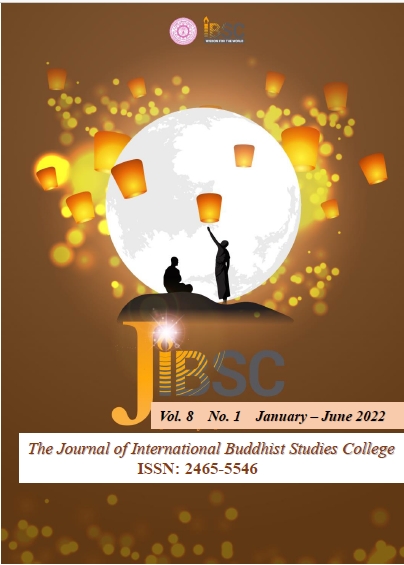The Roles of Reasoned Attention (Yonisomanasikara) in Theravada Buddhism: An Analytical Study
Main Article Content
Abstract
This paper provides an analytical study of the roles of reasoned attention (yonisomanasikāra) in Theravāda Buddhism, emphasizing its significance as a foundational practice for cultivating wisdom and mental clarity. Reasoned attention, often described as systematic or wise consideration, is a mental faculty that enables practitioners to discern the true nature of phenomena by reflecting on them with proper understanding. This study explores the various ways in which yonisomanasikāra is applied within the Theravāda tradition, particularly in the context of ethical conduct (sīla), mental concentration (samādhi), and wisdom (paññā). Drawing from key suttas and the Abhidhamma, the paper examines how yonisomanasikāra serves as a crucial antidote to unwholesome mental states, such as ignorance (avijjā) and delusion (moha), and supports the development of right view (sammā-diṭṭhi). By fostering a deep, analytical approach to experience, reasoned attention aids in the penetration of the three marks of existence—impermanence (anicca), suffering (dukkha), and non-self (anattā), and thus plays a pivotal role in the path to enlightenment. This study underscores the importance of yonisomanasikāra in daily practice and its relevance in addressing contemporary challenges in mindfulness and cognitive development.
Article Details
The Journal of TCI is licensed under a Creative Commons Attribution-NonCommercial-NoDerivatives 4.0 International (CC BY-NC-ND 4.0) licence unless otherwise stated. Please read our Policies page for more information on Open Access, copyright and permissions.
References
Bhikkhu Bodhi. The Noble eight Path: Way to the End of Suffering. Buddhist Publication Society. 2000.
Bhikkhu Khantipalo. The Noble eightfold Path and its factors explained. Shri Lanka: Buddhist Publication Society, 1998. p.5.
C.A.F Rhys David. Visuddhimagga 11, e s, London; PTS. 1975
Eviatar Shulman. Rethinking the Buddha: Early Buddhist Philosophy as Meditative Perception. New York: Cambridge University Press, 2014.
Radhakrishnan, Sarvepalli. Indian Philosophy: Vol. 2. George Allen & Unwin Ltd, 1948.
Venerable Mahasi Sayadaw. To Nibbana via the Noble Eightfold Path, First Printed and published in Socialist Republic of Union Burma, 1980.


